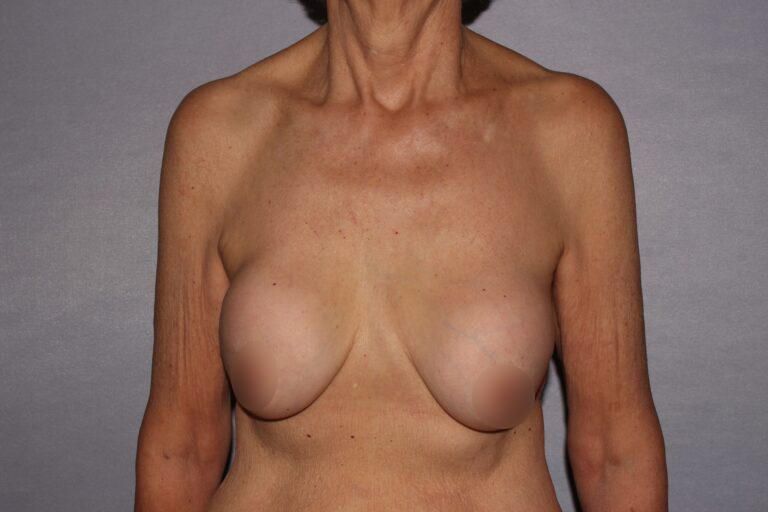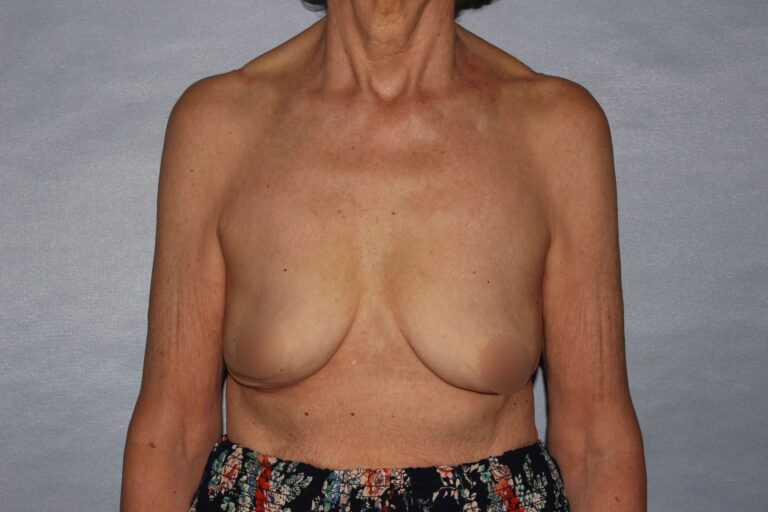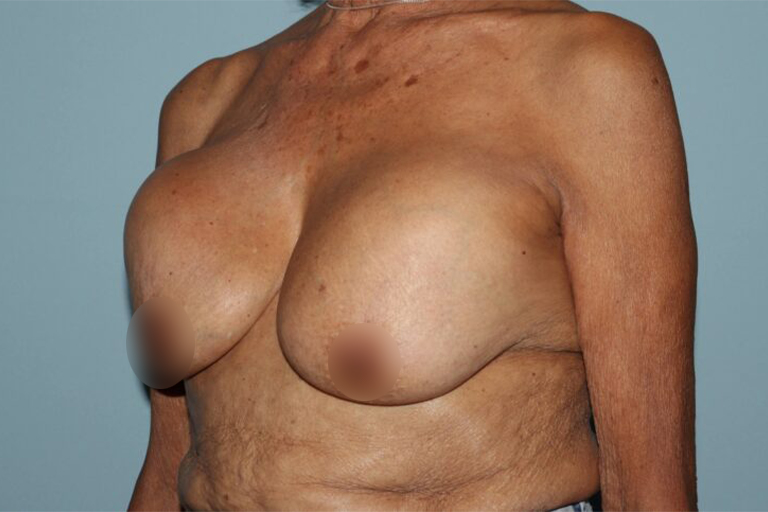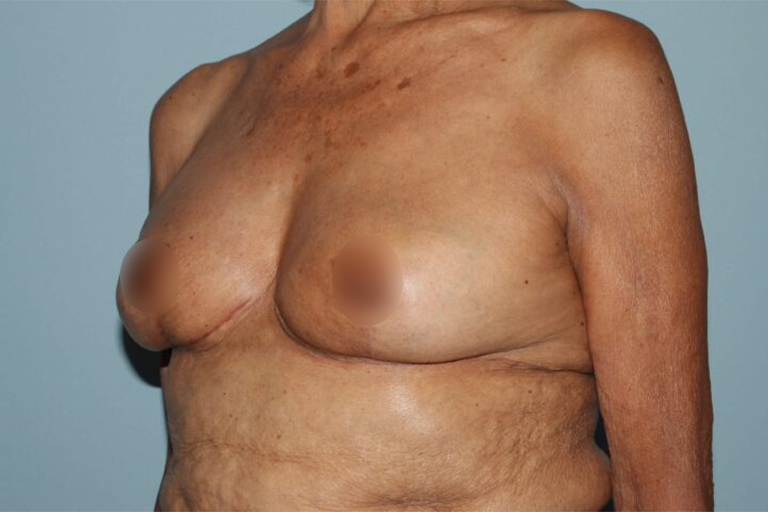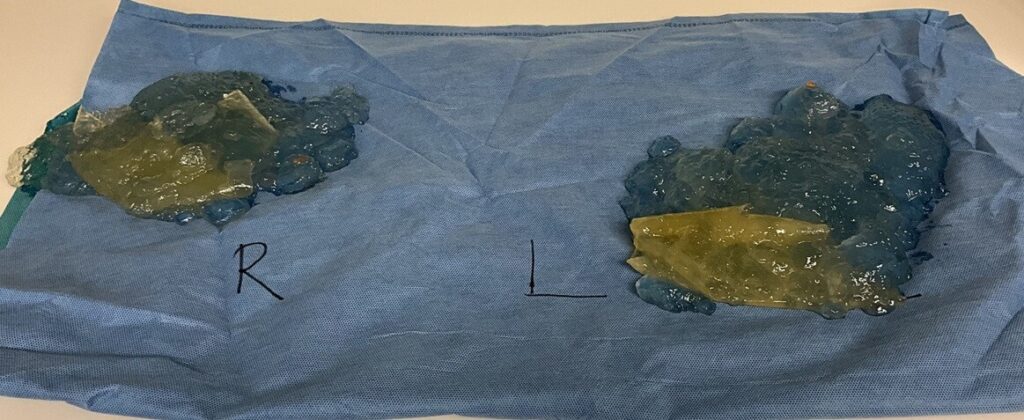
Dr. Glenn Lyle, a board-certified plastic surgeon, in Raleigh, NC, has worked with countless women who have faced concerns about their breast implants. Whether you received your implants years ago or have recently undergone augmentation, it is natural to worry about potential issues, especially when changes in breast shape or discomfort arise. Dr. Lyle’s priority is to ensure you have all the information necessary to make informed decisions about your health and well-being.
Breast implants can be life-changing, enhancing confidence and body image. However, concerns about their longevity and potential complications, such as implant ruptures, can cause anxiety. If you’re wondering, “Is my breast implant ruptured?” you’re not alone. Understanding the symptoms and knowing your options is essential for maintaining your health and appearance.
If you suspect your breast implant is ruptured, recognizing the signs and seeking expert guidance early can make all the difference. In this article, Dr. Glenn Lyle will walk you through the symptoms of a ruptured implant, diagnostic methods, treatment options, and preventive measures to ensure your peace of mind.

Meet Dr. Glenn Lyle
Board Certified Plastic Surgeon
Dr. Glenn Lyle, a board-certified plastic surgeon, has been proudly serving the Raleigh, NC, community at Lyle Plastic Surgery and Aesthetics Center since 2002. With a deep passion for helping patients reclaim their confidence, Dr. Lyle specializes in transformative breast surgery and body contouring procedures. Whether addressing the effects of weight loss, pregnancy, or aging, his expert care and artistic approach empower individuals to look and feel their best. Dr. Lyle is dedicated to creating beautiful, natural results that reflect each patient’s personal journey and goals.
What Causes Breast Implant Ruptures?
Breast implants are designed to be durable, but like any medical device, they are not immune to wear and tear. Several factors can contribute to an implant rupture, and understanding these causes can help you take proactive steps to minimize the risk.
One of the most common reasons for implant rupture is the natural aging process of the implant. Over the years, the outer shell of the implant can weaken, making it more susceptible to rupture. This is why many implant manufacturers and plastic surgeons, recommend regular check-ups and monitoring after 10 to 15 years of implantation.
Another significant factor is trauma or injury to the breast. Whether it’s from a car accident, a fall, or an intense impact during sports or exercise, a strong blow to the chest can potentially compromise the integrity of the implant. While breast implants are designed to withstand normal daily activities, direct and forceful trauma can lead to rupture. Fortunately, this is a rare event. It’s more likely to affect older implants as the newer devices are more durable.
Surgical complications can also contribute to implant rupture. If implants are not positioned properly, or if prior surgeries have created weaknesses in the surrounding tissue, there is a greater chance of failure over time. Additionally, excessive pressure, such as that experienced during mammograms or other medical procedures, can sometimes lead to damage, particularly in older implants.
Although rare, manufacturing defects can also be responsible for implant failure. High-quality implants from reputable manufacturers undergo extensive testing, but occasional defects can still occur. Choosing an experienced plastic surgeon, like Dr. Glenn Lyle, can help minimize this risk, as he uses only FDA-approved implants known for their safety and durability.
Finally, a condition called capsular contracture, where the scar tissue around the implant tightens and hardens, can increase pressure on the implant, making rupture more likely. This complication often requires surgical correction, and in some cases, removal or replacement of the implant.
Recognizing the Symptoms of a Ruptured Breast Implant
Recognizing the signs of a rupture depends on the type of implant you have: saline or silicone. Each type presents different symptoms, and some ruptures can be “silent,” meaning they have no obvious signs.
– Saline Implant Rupture Symptoms
A rupture in a saline implant is usually easy to detect because the implant deflates as the saline leaks out. The breast will suddenly appear smaller, asymmetrical, or deflated. Since saline is sterile, your body will naturally absorb the leaked fluid without causing harm, but the implant shell remains in place. You may also notice changes in the texture of the breast, with the skin appearing wrinkled or looser.
– Silicone Implant Rupture Symptoms (Silent Rupture)
Silicone implant ruptures are often referred to as silent ruptures because they may not produce immediate or noticeable symptoms. Unlike saline implants, silicone gel is designed to remain within the implant shell, so it does not immediately leak out. However, over time, the following symptoms may develop:
A rupture can cause subtle changes in breast shape or size, which often go unnoticed for months or even years. This is because the silicone gel tends to stay contained within the implant shell or surrounding scar tissue. While the change may be slow and gradual, it’s essential to monitor any differences in appearance or symmetry between the breasts.
As the rupture progresses, the breast may begin to feel firmer or develop lumps. These lumps can form when the silicone leaks into the surrounding tissue, triggering an inflammatory response from the body. If left unaddressed, this can cause discomfort and potential complications over time.
Some women experience swelling, discomfort, or pain that gradually worsens. This symptom can be a result of inflammation or irritation caused by the leaked silicone. While not all ruptures cause pain, persistent tenderness or aching in the breast should prompt an evaluation.
Capsular contracture is another potential indicator of a silent rupture. This condition occurs when the scar tissue around the implant tightens, causing the breast to feel unnaturally firm and hard. In some cases, capsular contracture can lead to noticeable distortion of the breast’s shape, making the rupture more apparent.
Changes in sensation are another sign of a possible rupture. Some women report altered feeling in the breast, such as numbness, tingling, or heightened sensitivity. These changes can be due to the body’s reaction to the leaked silicone or pressure exerted by capsular contracture.
Since silent ruptures can go undetected without imaging, Dr. Lyle strongly recommends routine MRI screenings every few years to ensure the integrity of your silicone implants.
Breast Implant Removal Before and After Photos
How to Confirm if Your Breast Implant is Ruptured
If you suspect a rupture, medical evaluation is crucial. Dr. Lyle typically begins with a thorough physical examination to assess any noticeable changes in breast shape, firmness, or discomfort. However, imaging is often necessary for a definitive diagnosis.
An ultrasound is a quick, non-invasive option that can help detect obvious abnormalities in both saline and silicone implants. For a more accurate diagnosis, Magnetic Resonance Imaging (MRI) is considered the gold standard, especially for silicone implants. An MRI provides a detailed look at the implant structure and can identify even small leaks or ruptures that might otherwise go unnoticed.
If imaging confirms a rupture, Dr. Lyle will discuss your options to determine the best course of action.
faqs about Symptoms and Solutions for a Ruptured Implant
How can I tell if my breast implant is ruptured?
If you notice changes in breast size, shape, firmness, or experience pain or discomfort, you should consult with Dr. Glenn Lyle for an evaluation. Imaging tests like MRI or ultrasound can confirm a rupture.
Are ruptured breast implants dangerous to my health?
While saline ruptures are harmless, silicone ruptures may cause inflammation or capsular contracture. Prompt medical attention is advised to prevent further complications.
What should I do if I suspect my implant has ruptured?
Schedule an appointment with Dr. Glenn Lyle as soon as possible. A proper examination and imaging can determine whether your implant needs to be removed or replaced.
Will a ruptured implant cause pain or discomfort?
Some ruptures are painless, while others may cause discomfort, swelling, or firmness. The severity of symptoms varies depending on the type of implant and extent of leakage.
Can a mammogram detect a ruptured breast implant?
Mammograms can sometimes indicate an implant rupture, but MRI is the most reliable imaging test for detecting silicone ruptures.
What are my surgical options for a ruptured implant?
You can choose to have the implant removed, replaced, or combine the procedure with a breast lift if necessary.
How long do breast implants typically last before rupture becomes a concern?
While implants are durable, most manufacturers recommend monitoring them after 10-15 years and replacing them if necessary.
Medical References
- Breast Implant Rupture: Causes, Diagnosis and Treatment / International Journal of Medical Science and Clinical Research Studies / https://ijmscr.org/index.php/ijmscrs/article/view/779
- Risks and Complications of Breast Implants – FDA / U.S. Food & Drug Administration / https://www.fda.gov/m
- Silicone breast implants: What happens if they rupture? / Mayo Clinic / https://www.mayoclinic.org/healthy-lifestyle/womens-health/expert-answers/breast-implants/faq-20058454
- Silicone breast implant rupture: a review / National Center for Biotechnology Information / https://pmc.ncbi.nlm.nih.gov/articles/PMC5409893/
- Breast Implant Illnesses: What’s the Evidence? / Center for Research / https://www.center4research.org/breast-implant-illnesses-whats-evidence/
Final Thoughts
If you suspect your breast implant is ruptured, don’t ignore the signs – early evaluation leads to the best outcomes. Whether you need reassurance, diagnosis, or surgical solutions, Dr. Glenn Lyle is here to help. As a leading plastic surgeon in Raleigh, NC, he has years of experience helping women navigate breast implant complications with confidence and peace of mind.
Further Reading
- Read more Dr. Glenn Lyle’s Blog on Top 5 Reasons for Breast Implant Removal in North Carolina
- Read more Dr. Glenn Lyle’s Blog on Breast Explantation Surgeons – use Caution!
- Read more Dr. Glenn Lyle’s Blog on Considerations for Breast Implant Removal After Weight Loss
- Read more Dr. Glenn Lyle’s Blog on Breast Implant Rupture Rates are Decreasing As Devices Improve
- Read more Dr. Glenn Lyle’s Photo Page on Implant Exchange with Capsulectomy and Mastopexy in Raleigh, NC
- Read more about Breast Implant Removal in Raleigh, NC
